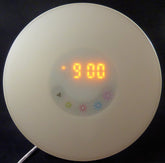Sleep
Sleep is an essential requirement for maintaining good health. We need sleep for for a number of bodily functions, including processing memory, growing muscle, repairing tissue, and synthesizing hormones. A process called consolidation occurs during sleep where short term memories accumulated during the day's activities are converted to stronger long term memory.
Healthy sleep is critical since we all need to retain information and learn skills to thrive in life. But this is likely part of the reason children—who acquire language, social, and motor skills at a breathtaking pace throughout their development—need more sleep than adults. As adults we need 7-9 hours of sleep a night, whereas one-year-olds need 11 to 14 hours, school age children between 9 and 11, and teenagers between 8 and 10.
Tips to Getting a Good Night's Sleep (Good Sleep Habits)
Many things can help you have a better night's sleep, including some of the products listed below.
- Keep regular times for going to bed and getting up.
- Relax for an hour before going to bed.
- Avoid going to bed on a full or empty stomach.
- Sleep in the dark.
- If you are not asleep after 20 minutes in bed, go to another room until you feel tired again.
- Many poor sleepers spend too long in bed.
- Avoid checking your phone - if you do download apps that eliminate blue from the display to minimize impact of interrupting your sleep cycle.
- Avoid TV or computers before bed, as they emitt blue light which switches your brain into awake mode.
- Keep distracting things out of the bedroom.
- Get some sunlight during the day.
- An evening nap can make it hard to sleep at night.
- Keep a good diet with good nutrition.
- Avoid alcohol before bed.
- To avoid a sluggish or groggy period after sleeping, ensure that you wake slowly using a sunrise clock (available below).
-
Vendor:Natures Energies
100% Helium @ 1500 psi - Omnidirectional Inert Gas Beaming Device #2
Description: 100% Helium @ 1500psi Click here to read about about the theory and use of the inert gas devices in general as well as realistic dimensions of the inert gas and magnetic field. Container Material Color Dimension (cm) Empty Container Weight (g) Aluminium...- $580.00 USD
- $580.00 USD
- Unit price
- per
-
Vendor:Salt Co
Dream Catcher - Black Suede
Available in medium or large. Medium Dimension Weight (oz/g) Diameter: 22 cm Wide; 65 cm Drop 2.2 / 62 Large Dimension Weight (oz/g) Diameter: 32 cm Wide; 75 cm Drop 4.5 / 125- From $11.95 USD
- From $11.95 USD
- Unit price
- per
-
Vendor:Dynamoh House
Dreams Mini Chart
A handy reference chart that supplies interpretations of over 600 dream subjects (the decoder shown above features over 800 topics). Printed and protection coated on both sides for durability. The Dreams Mini Chart measures 9.25 x 6.25" (235 x 160mm) in size. Sample Scan...- $9.95 USD
$11.95 USD- $9.95 USD
- Unit price
- per
-
Vendor:Made by Earth
Insomnia Crystal Healing Kit
Use this kit by placing under a pillow, in a pocket or a handbag; can be used by anyone, of any age. Amethyst - brings calm to the mind, relieves insomnia Hematite - aids insomnia by harmonizing the body Lapis Lazuli - provides insomnia relief Howlite -...- $10.95 USD
$13.95 USD- $10.95 USD
- Unit price
- per
-
Vendor:Natures Energies
Insomnia Formula - Omnidirectional Inert Gas Beaming Device #8
Insomnia Formula 90% Helium; 10% Neon @ 1000 psi Click here to read about about the theory and use of the inert gas devices in general as well as realistic dimensions of the inert gas and magnetic field. Container Material Color Dimension (cm) Empty Container Weight...- $640.00 USD
- $640.00 USD
- Unit price
- per
-
Vendor:Natures Energies
Snore Free Magnetic Nose Clip
Remove the snoring from YOUR sleep and get a good night's sleep! The Snore free magnetic nose clip is an effective means by which you can overcoming snoring problems in the bedroom. Snoring not only affects your partners sleep - it can affect your...- $9.95 USD
$12.95 USD- $9.95 USD
- Unit price
- per
-
Vendor:Natures Energies
Stop Snoring "Snore Stopper" Wrist Band
Stop Snoring Easily Using Painless Electro acupuncture While You Sleep ..... The Stop Snoring Wrist Band is a revolutionary device designed to reduce snoring through a patent nerve stimulation process. It features a specially designed biosensor with logic-control IC. When the Stop Snoring Wrist...- $9.95 USD
- $9.95 USD
- Unit price
- per
-
Vendor:Natures Energies
Sunrise Clock
Wake Healthier and Vibrant through the Sunrise Clock There is a biological basis for hating the sudden shock of your alarm waking you from a deep sleep. This is usually as a result of experiencing sleep inertia, and it can leave you feeling groggy for some hours after...- $59.95 USD
$89.95 USD- $59.95 USD
- Unit price
- per

 How Much Sleep do we Need?
How Much Sleep do we Need?












